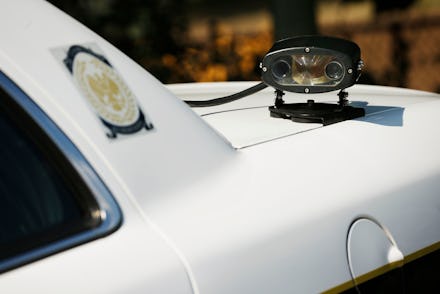Someone Just Leaked a Catalog of Police Spying Gear You Were Never Supposed to See

Police technology's Edward Snowden moment has come.
We know so little about the Stingray, the portable scanner police use to sweep up information from nearby cellphones. Until this week, people learned about the tech in drips and drabs from lawsuits and leaks.
On Thursday, however, the Intercept published a catalog of police surveillance devices, leaked by a confidential source concerned with the gradual and alarming militarization of the American police force. The list includes 53 items for sale to local police, with names like Kingfish, Cyberhawk and Spartacus II.
The devices are "cell-site simulators" — objects that act like cell towers so when phones are looking for service, they connect with the device. Almost all of the devices are used to track the GPS locations of phones. Some, like the Blackfin II, allow police to intercept communications, read texts and listen in on calls for police who are in possession of a "superwarrant." Two of the devices can take a confiscated phone and extract contacts, notes and even, in one case, deleted texts.
Other devices include a range of DRTs, or "dirt boxes" — similar kinds of simulators that can store tens of thousands of entries at a time, and can be mounted in cars, hidden in vans, flown in planes or simply taken anywhere police might need dragnet-style surveillance of a large group, like a gathering or protest.
In plain site: The government has been using cell-site simulators for two decades. They were initially a tool developed to monitor enemy communications during war, and they eventually made their way into local police departments.
But we've only recently learned of their existence. Stingrays were first exposed by Daniel Rigmaiden, who meticulously built a case for the devices from prison after a cell-site simulator was used to put him behind bars.
The FBI has even been keeping track of and instructing local police departments who are in possession of cell-site simulators, saying that they should "immediately notify the FBI of any such request telephonically and in writing" so the FBI can intervene.
"It's remarkable to see collusion by state and federal agencies to undermine public records requests, which are clearly aimed at keeping the public in the dark about the use of Stingray technology," Hanni Fakhoury, a lawyer for the Electronic Frontier Foundation, told Ars Technica. "After all, any truly sensitive law-enforcement details could be redacted under traditional public records act law. But the notion that the federal government would work to actively block disclosure of records seems clearly to have a chilling effect on obtaining information about this controversial surveillance tool."